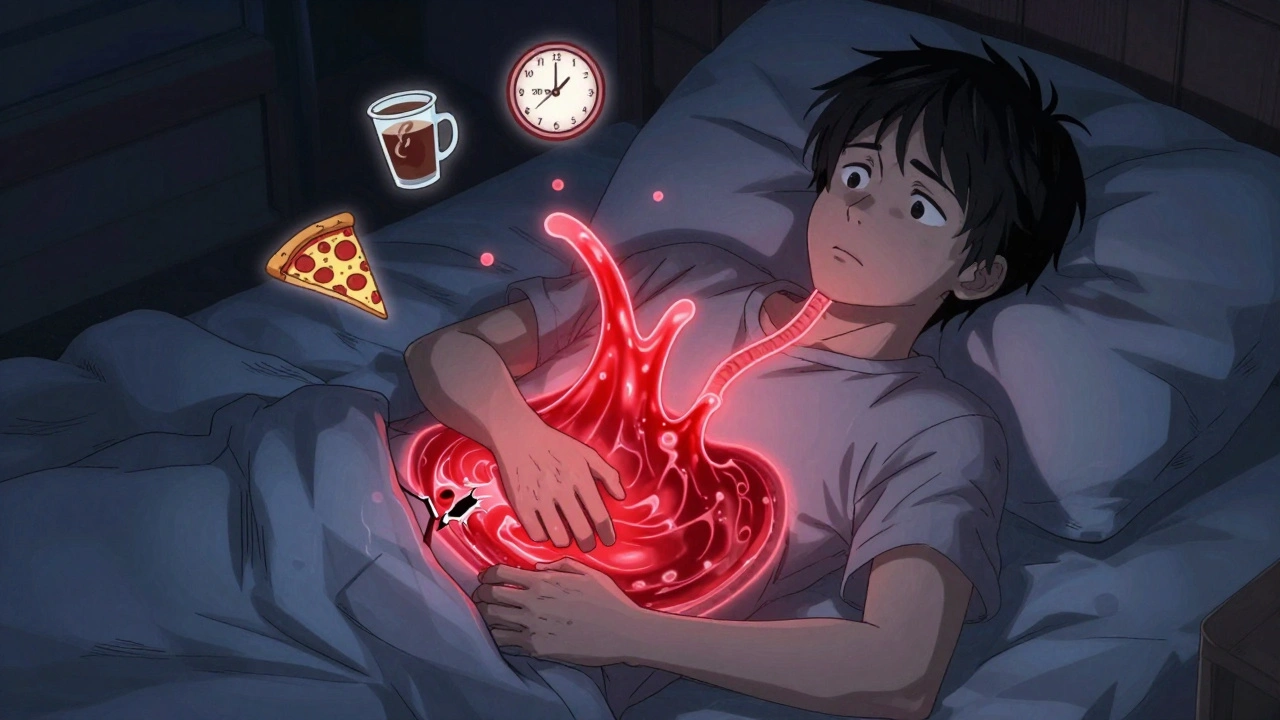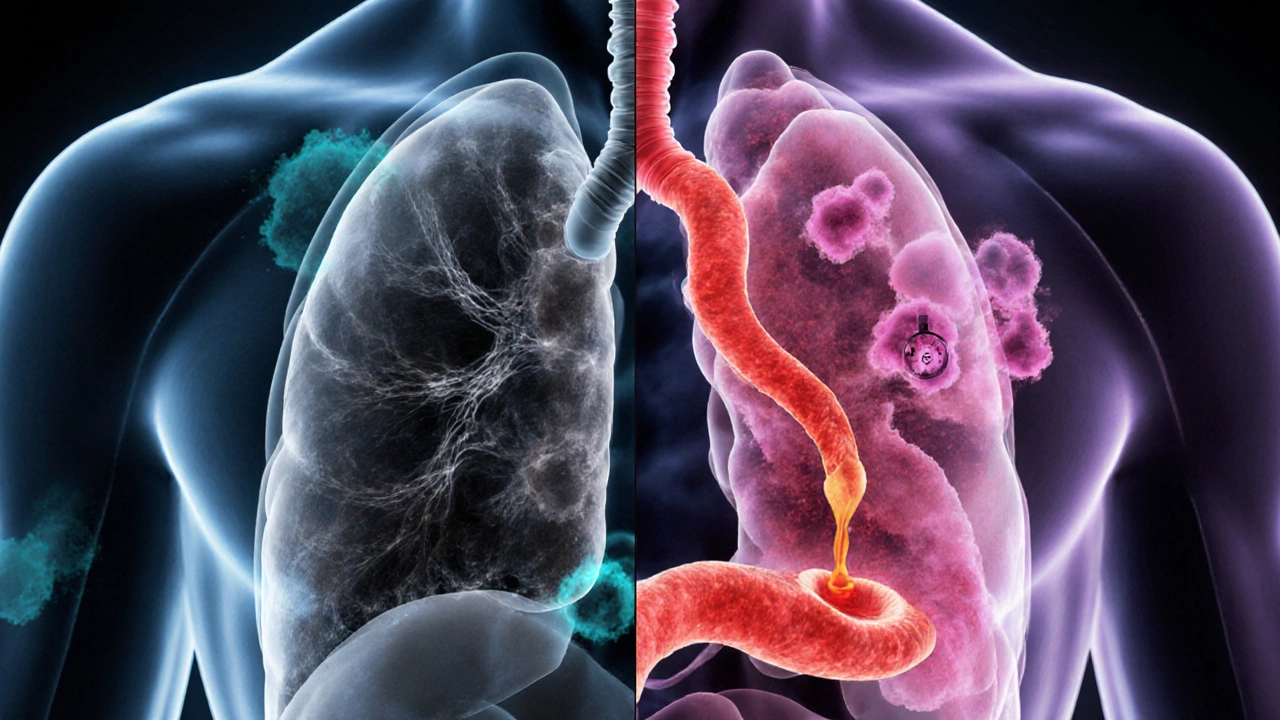GERD: Causes, Triggers, and What Works Best for Relief
When you feel that burning feeling behind your breastbone, especially after eating, you might be dealing with GERD, a chronic condition where stomach acid flows back into the esophagus, causing irritation and damage over time. Also known as gastroesophageal reflux disease, it’s not just occasional discomfort—it’s something that happens at least twice a week for many people.
GERD isn’t caused by one thing. It’s a mix of weak muscles, diet, weight, and even how you sleep. The lower esophageal sphincter, the valve between your stomach and esophagus, isn’t closing right. That lets acid splash up. Certain foods make it worse—spicy meals, coffee, chocolate, fatty foods, and alcohol. Lying down soon after eating? That’s a recipe for trouble. Even tight clothes or being overweight can add pressure and push acid upward. And yes, stress plays a role too—not because it causes acid, but because it slows digestion and makes you more sensitive to it.
Many people try antacids first, but those only give short-term relief. For lasting control, proton pump inhibitors, medications that block acid production at the source like omeprazole or esomeprazole are often the go-to. H2 blockers like ranitidine (before it was pulled) or famotidine help too, but they don’t last as long. Some folks find relief with lifestyle changes alone—eating smaller meals, waiting three hours before lying down, raising the head of the bed, or quitting smoking. But if symptoms stick around, you can’t just live with it. Left untreated, GERD can lead to Barrett’s esophagus, a condition that raises cancer risk.
The posts below cover real-world approaches to managing GERD and related issues. You’ll find comparisons of common meds like Prilosec and Nexium, tips on how diet affects gut health, and even how anxiety and stress tie into flare-ups. There’s no one-size-fits-all fix, but there are proven paths to feeling better. Whether you’re trying to cut back on pills or just want to understand why your heartburn won’t go away, you’ll find practical advice here—not theory, not fluff, just what works.

